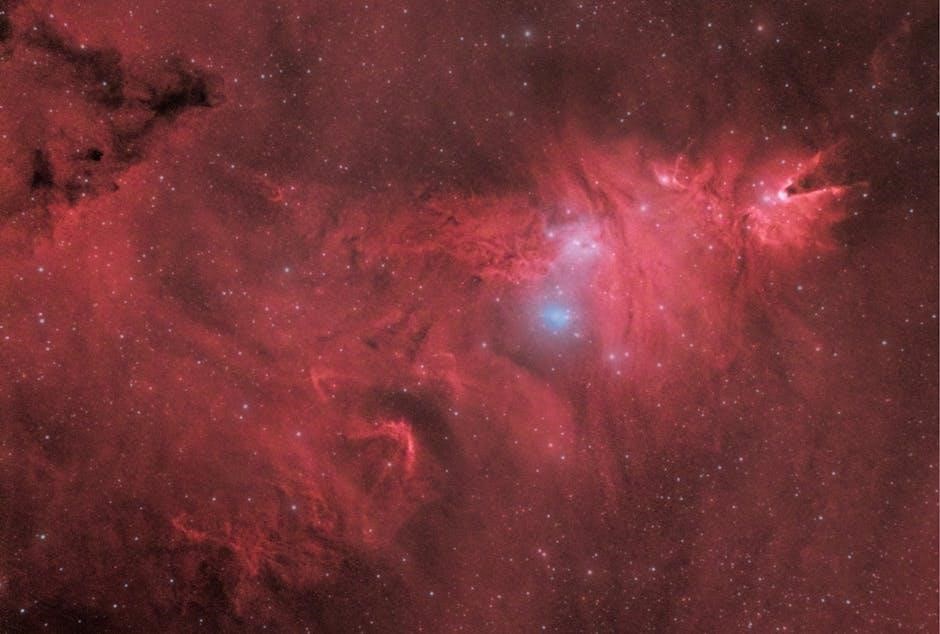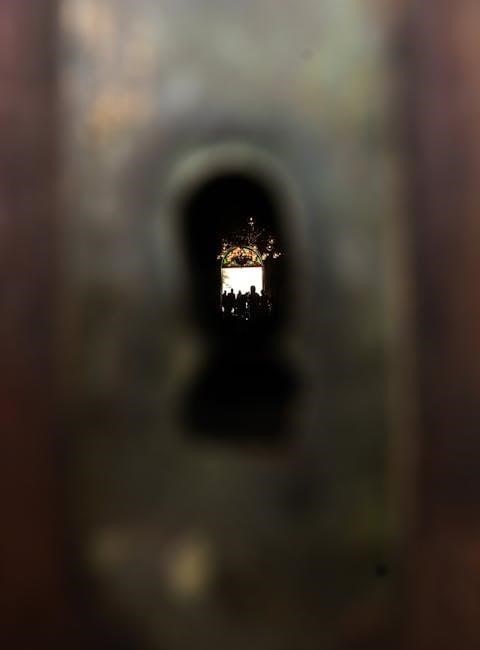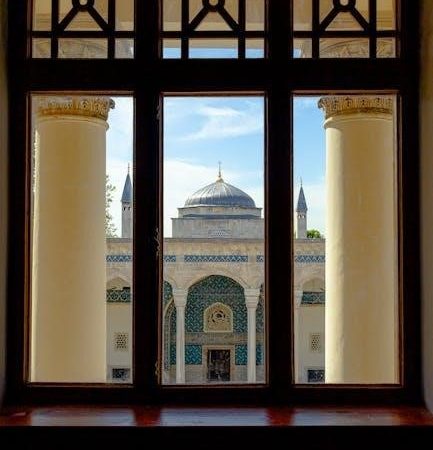Aristotle and Dante Discover the Secrets of the Universe, a poignant coming-of-age novel by Benjamin Alire Sáenz, follows two Mexican teenagers in 1980s El Paso, exploring themes of identity and friendship, with a movie adaptation produced by Lin-Manuel Miranda․
Overview of the Book and Its Author
Aristotle and Dante Discover the Secrets of the Universe, written by Benjamin Alire Sáenz, is a captivating young adult novel published in 2012․ Set in the late 1980s in El Paso, Texas, the story follows Mexican teenagers Aristotle Mendoza and Dante Quintana as they navigate self-discovery, friendship, and love․ Sáenz, an award-winning author, masterfully weaves themes of identity, family, and racial heritage, creating a deeply emotional and relatable narrative․ The novel has garnered widespread acclaim for its heartfelt prose and authentic portrayal of adolescent struggles, solidifying its place as a modern coming-of-age classic․
Historical Context and Setting
The novel is set in the late 1980s in El Paso, Texas, along the U․S․-Mexico border․ This unique setting influences the characters’ experiences, blending Mexican heritage with American culture․ The small-town environment and the vast desert landscapes create a backdrop for Aristotle and Dante’s journeys of self-discovery․ The time period reflects societal norms of the era, with its challenges for Latino youth navigating identity and belonging․ The border setting symbolizes the characters’ dual identities and their struggles to reconcile their roots with their aspirations․ This historical and cultural context enriches the story, grounding it in a specific time and place․

Major Themes Explored in the Novel
The novel delves into self-discovery, friendship, racial identity, family dynamics, and first love, set against the backdrop of a vast, symbolic universe reflecting life’s complexities and beauty․
Self-Discovery and Identity
Aristotle and Dante Discover the Secrets of the Universe deeply explores themes of self-discovery and identity through its protagonists․ Aristotle, a brooding teenager, struggles with his family’s past and his own sense of belonging, while Dante, a free-spirited intellectual, embraces his uniqueness․ Their friendship becomes a catalyst for growth, as they navigate racial and ethnic identity, sexuality, and the complexities of adolescence․ Set in 1980s El Paso, the novel vividly portrays their journeys of self-acceptance, highlighting the challenges and beauty of understanding oneself․ Through their experiences, Sáenz crafts a powerful narrative about finding one’s place in the world and embracing authenticity․
Friendship and Love
The friendship between Aristotle and Dante blossoms into a profound bond that transcends typical adolescent relationships․ Their connection, rooted in mutual understanding and acceptance, evolves into a deep emotional intimacy․ Set against the backdrop of 1980s El Paso, their story explores the complexities of first love and the vulnerability of opening one’s heart․ Aristotle, initially reserved, finds solace in Dante’s free-spirited nature, while Dante discovers strength in Aristotle’s quiet resilience․ Their relationship becomes a sanctuary for self-expression and growth, illustrating the transformative power of love and friendship․ The novel beautifully captures the essence of two souls navigating the uncertainties of youth together․
Racial and Ethnic Identity
Aristotle and Dante navigate the complexities of their racial and ethnic identities as Mexican teenagers in 1980s El Paso․ The novel delves into the struggles of cultural heritage, exploring the tensions between tradition and personal identity․ Aristotle’s withdrawn nature contrasts with Dante’s embrace of their shared background, highlighting their different approaches to navigating a predominantly white world․ Their experiences reflect the broader challenges faced by Latinx youth in balancing pride in their roots with the pressures of societal expectations․ The story offers a nuanced portrayal of identity, emphasizing the importance of embracing one’s culture while forging an authentic self․ This theme resonates deeply with readers seeking to understand their own heritage․
Family Dynamics and Secrets
Aristotle and Dante grapple with the complexities of family dynamics, where unspoken secrets and unresolved tensions shape their identities․ Aristotle’s father, haunted by war memories, struggles to connect with his son, while Dante’s parents, though loving, conceal truths about their past․ These familial silences create a sense of disconnection, influencing the boys’ journeys of self-discovery․ The novel highlights how family secrets can both protect and isolate, underscoring the need for honesty and understanding; Through their experiences, the story illustrates the profound impact of family dynamics on personal growth and the importance of confronting hidden truths to forge authentic relationships․ This theme resonates deeply with readers․

Character Development
Aristotle, a brooding teenager, and Dante, a free-spirited intellectual, evolve through their friendship, learning to confront secrets and embrace their true selves in 1980s El Paso․
Aristotle Mendoza: The Brooding Teenager
Aristotle Mendoza, a deeply introspective and guarded teenager, struggles with his family’s past and his own identity․ His older brother’s imprisonment and his father’s silent grief weigh heavily on him․ Aristotle’s reserved nature contrasts sharply with Dante’s openness, creating a dynamic tension that propels their relationship forward․ Throughout the novel, Aristotle grapples with feelings of isolation and anger, gradually opening up as Dante’s influence helps him confront his inner demons․ His journey is one of quiet resilience, as he learns to embrace vulnerability and redefine his sense of self in a world that often feels overwhelming․
Dante Quintana: The Free-Spirited Intellectual
Dante Quintana, a striking contrast to Aristotle’s brooding nature, is a free-spirited intellectual whose love for poetry, philosophy, and nature shapes his outlook on life․ His family’s relative stability and open communication foster a sense of security, allowing him to embrace his individuality․ Dante’s curiosity and passion for learning draw Aristotle into a world of exploration and self-discovery; His openness about his feelings and his acceptance of his identity create a safe space for Aristotle to confront his own struggles․ Dante’s journey is one of growth, as he navigates the complexities of adolescence while remaining true to his authentic self․ His influence on Aristotle is profound, fostering a deep and transformative friendship․
The Evolution of Their Relationship
The relationship between Aristotle and Dante evolves from an unexpected summer friendship to a deeply transformative bond․ Initially, their differences—Aristotle’s introversion and Dante’s openness—create a dynamic tension․ As they spend more time together, they confront their insecurities and secrets, fostering mutual trust and understanding․ Their friendship becomes a sanctuary where they explore identity, family, and love․ Through shared experiences, they challenge each other to embrace their true selves․ The evolution of their relationship is marked by moments of vulnerability, growth, and acceptance, ultimately shaping them into the individuals they aspire to be․ Their connection becomes a cornerstone of their lives․

Symbolism in the Novel
In Aristotle and Dante Discover the Secrets of the Universe, water and nature symbolize transformation and self-discovery, while the universe represents life’s vast mysteries and the boys’ journey to understand themselves and their place in the world․
The Significance of Water and Nature
Water and nature play pivotal roles in Aristotle and Dante Discover the Secrets of the Universe, symbolizing transformation and self-discovery․ Dante teaches Aristotle to swim, marking a turning point in their friendship and Ari’s journey of self-acceptance․ The vast, arid landscape of El Paso reflects the characters’ emotional desolation, while moments by the river symbolize renewal and connection․ Nature serves as a backdrop for their introspection, with the desert’s harsh beauty mirroring Ari’s internal struggles․ These elements weave together to illustrate how the natural world influences their understanding of identity, family, and the universe’s mysteries, becoming a metaphor for the vastness of life itself․
The Universe as a Metaphor for Life
The universe in the novel serves as a profound metaphor for the complexity and mystery of life․ Aristotle and Dante’s fascination with the cosmos mirrors their journey of self-discovery and understanding the world around them․ The vastness of the universe symbolizes the infinite possibilities and uncertainties of growing up, while its beauty reflects the boys’ shared moments of wonder and connection․ Through their conversations about the stars and the unknown, Sáenz highlights the interconnectedness of human experiences and the search for meaning․ The universe becomes a canvas for their emotions, struggles, and aspirations, embodying the idea that life, like the cosmos, is both vast and deeply personal․

The Movie Adaptation
The film adaptation, produced by Lin-Manuel Miranda, Eva Longoria, and Eugenio Derbez, brings to life the heartfelt story of Aristotle and Dante, directed by Aitch Alberto in 2022․
Production and Key Cast Members
The movie adaptation of Aristotle and Dante Discover the Secrets of the Universe is produced by Lin-Manuel Miranda, Eva Longoria, and Eugenio Derbez, ensuring a star-studded production team․ Directed by Aitch Alberto, the film brings to life the profound journey of self-discovery and friendship․ The cast includes talented actors who embody the essence of the characters, capturing the depth of their relationships and personal growth․ The movie, a 2022 coming-of-age romantic drama, premiered at the Toronto International Film Festival (TIFF), garnering significant attention and acclaim․ This adaptation is a testament to the original novel’s enduring appeal, offering a heartfelt and visually stunning experience that resonates deeply with audiences, particularly queer Latinx youth seeking authentic representation․
Reception and Cultural Impact
The film adaptation of Aristotle and Dante Discover the Secrets of the Universe has been met with widespread acclaim for its authentic portrayal of queer Latinx youth and its exploration of identity․ Produced by Lin-Manuel Miranda, Eva Longoria, and Eugenio Derbez, the movie has resonated deeply with audiences, particularly within the Latinx community․ Premiering at the Toronto International Film Festival (TIFF), it has been celebrated for its sensitive and heartfelt storytelling․ The film’s cultural impact lies in its ability to provide representation to underrepresented voices, making it a significant milestone in queer and Latinx cinema․ Its success underscores the importance of diverse narratives in storytelling․
The novel and film leave a lasting impact, offering universal lessons on identity, friendship, and resilience, resonating with audiences of all ages․
Legacy of the Book and Film
Aristotle and Dante Discover the Secrets of the Universe has become a cult classic, celebrated for its heartfelt exploration of identity, friendship, and first love․ The novel, published in 2012, earned critical acclaim and numerous awards, solidifying Benjamin Alire Sáenz’s reputation as a masterful storyteller․ The 2022 film adaptation, produced by Lin-Manuel Miranda and featuring Eva Longoria and Eugenio Derbez, brought the story to a wider audience, further cementing its cultural impact․ Both the book and film have left an indelible mark on literature and cinema, offering a poignant and relatable journey of self-discovery that resonates with readers and viewers worldwide․
Universal Lessons for Readers and Viewers
Aristotle and Dante Discover the Secrets of the Universe offers timeless lessons about identity, belonging, and the power of human connection․ The story emphasizes the importance of embracing one’s true self, even in the face of societal expectations or family secrets․ Through the characters’ journeys, readers and viewers learn about resilience, empathy, and the transformative impact of love and friendship․ The novel and film remind audiences that everyone has a unique place in the universe and that understanding and accepting oneself is the first step to finding peace and purpose․ These universal truths resonate deeply, making the story a cherished experience for many․
